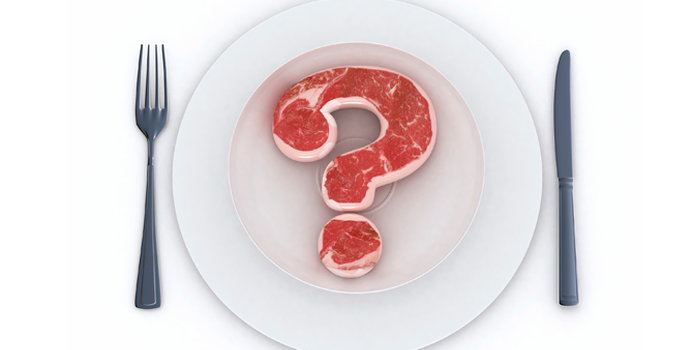High-protein diets typically restrictive in carbohydrates have been the foundation of many fad diets. Often in addition to large amounts of protein, these diets are typically restrictive or even eliminate entire food groups. Although eliminating or severely restricting food groups may cause some weight loss, often these diets are not adequate in providing all the essential phytonutrients, vitamins, minerals, trace minerals, fiber and antioxidants that your body needs.
The Recommended Dietary Allowances (RDAs) for protein needs are set at a minimum of 0.8 g/kg body weight, or about 0.4 g/lb, but many high-protein diets aim for 1.2 to 1.4 g/kg. When determining your protein needs, be sure to calculate it off your body weight, not the percentage of the calories that you aim to consume in a day. High-protein diets typically are about 25% to 30% protein, 40% to 45% carbohydrates, and no more than 30% fat.
The reason why high-protein continues to be a popular aspect of most diets is because eating protein results in longer satiety than either fats or carbohydrates. Eating protein with your meals will help you feel fuller for longer because proteins are slower to digest. This enables people to eat less and feel more capable of controlling their appetites. Furthermore, protein also has a higher rate of thermogenesis, so it takes more energy to digest, utilize and metabolize the protein and other nutrients found in the protein sources. But remember that you need to not just eat a high-protein meal at dinner time, but consume protein throughout the day. Positive protein balance only lasts about 3 hours after ingestion, so be sure to avoid skipping meals and adding a protein source to your breakfast and lunch.
Exercise also needs to be a key element of your high-protein diet and lifestyle. These diets tend to help preserve lean body mass during weight loss, in addition to helping build lean muscle mass. Exercising, especially strength building, will help you build muscle and utilize the protein from your diet. High protein diets are associated with lean tissue muscle mass breaking down at a rate of 20%, while fat breaks down at about 80%. This is in contrast to the rates seen in starvation of about 50% breakdown of fat and lean tissues. Exercising will help keep the rate of muscle loss lower.
Some challenges of high protein diets
1. If You Have Renal Disease or Diabetes
There is actually little clinical evidence supporting the claim that high-protein diets strain the kidneys and cause long-term complications. But for those people who already have diseases, like renal disease or diabetes that effect the functioning capability of your kidneys, high protein diets may not be the choice for weight loss.
2. Choose Lean Protein Choices
If you are attempting a high-protein diet, focus on choosing lean protein choices like beans, lentils, fish, tofu, turkey and chicken. Although these diets typically have positive effects at reducing triglycerides, and raising HDLS levels, there is little change to LDL levels and these diets are typically higher in total fat, saturated fat and cholesterol. The Academy of Nutrition and Dietetics still recommends a limited intake of trans-fats and saturated fats.
3. Reduce Red Meat
In addition to red meat being a huge environmental stress, consumption of red meat and processed meats has been linked to increased risk of prostate cancer for men, especially if the meat has been cooked at high temperatures.
4. Calcium Intake
There are higher levels of urinary calcium excreted, so compensate for these losses by consuming at least 3 servings of calcium-rich foods every day. High-protein diets have also been shown to increase calcium uptake, support bone health and preserve bone density during weight loss but it is important to balance essential nutrient losses with intake.
5. Energy Levels
Some people report feeling mild to acute fatigue. Carbohydrates are the most easily digested foods for energy production for your body and brain. If you are feeling fatigued, consider adding more complex carbohydrates to your diet like starchy vegetables, fresh fruits or whole grains.

Emily DeLacey MS, RD is a Registered Dietitian and currently working in Jamaica as a HIV/ AIDS Prevention Specialist. She attended Central Washington University for her Bachelor's Degree in Science and Dietetics and continued on after her internship to Kent State University for her Master's Degree in Science and Nutrition, with a focus on public health and advocacy. She served as a U.S. Peace Corps Volunteer in Malawi 2012-2014 working as a Community Health Advisor in a rural village, immersing in the joys of life without electricity or running water. She has been to 20+ countries and 47 of the 50 states in the US. Traveling, adventuring and experiencing new cultures has made her a passionate advocate for the equality of nutrition and wellness for all people.



